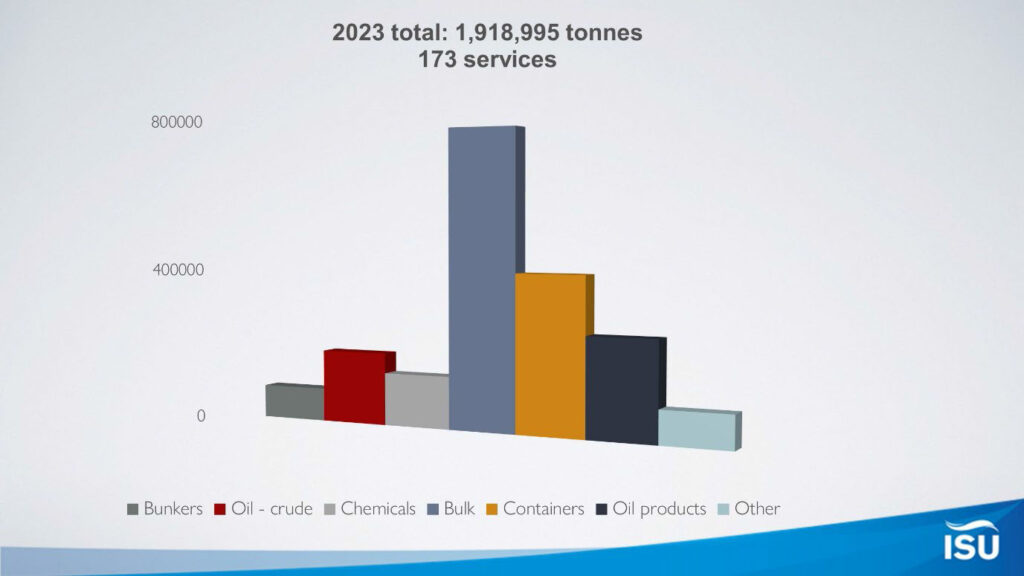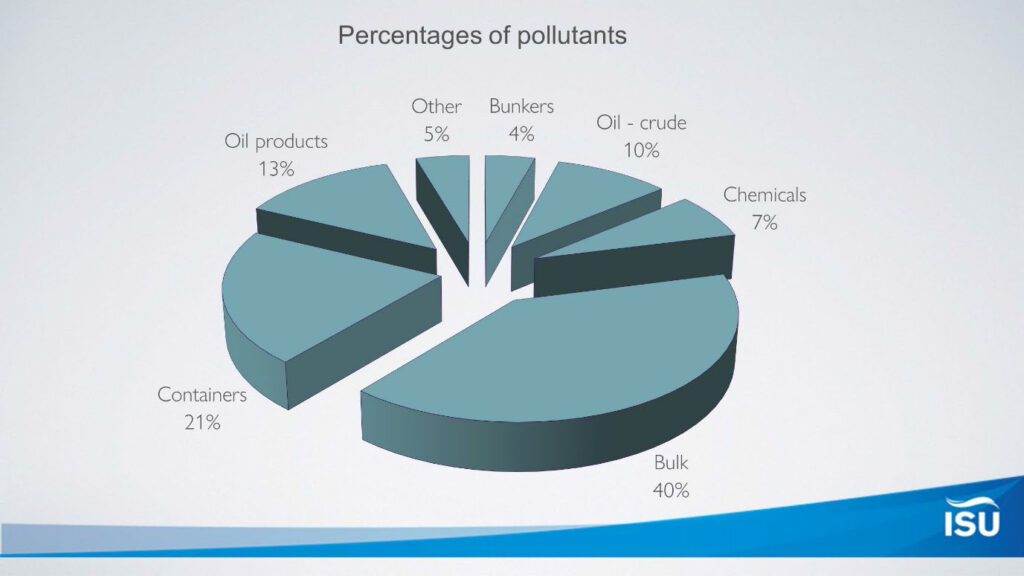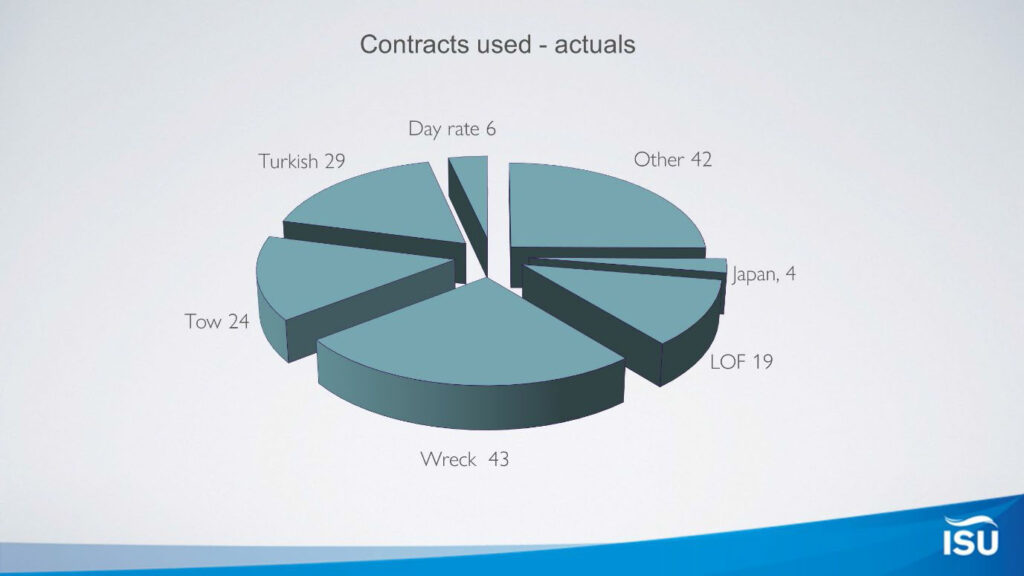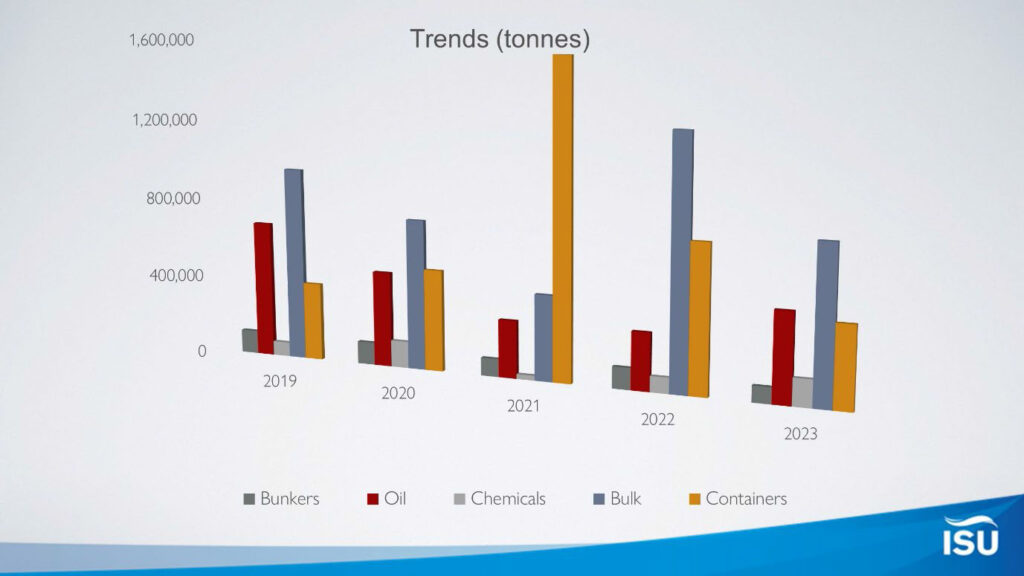Members of the International Salvage Union (ISU) provided 173 services to vessels carrying 1.9 million tonnes of potentially polluting cargo and fuel during operations in 2023.
It again demonstrates the vital role of professional salvors in protecting the marine environment. The data come from the ISU’s Annual Pollution Prevention Survey for operations in 2023.
President of the ISU, John Witte, said: “More than ever, ESG requirements are at the top of the agenda for all industries and of course for shipping. The focus on
emissions and climate change must be maintained but we must not lose sight of the importance of simply protecting the environment. It affects those providing services to shipping as much as the owners: the insurers and financiers as we see with the adoption of the Poseidon Principles.
“Sustaining a viable professional salvage industry ready to respond to all kinds of incidents around the world is vital and that is recognised by insurers and owners but it needs to be properly funded.”
There were fewer services in 2023 compared with the previous year and that is in line with the downward trend of the ISU general industry statistics. But each year there can be significant variations of the quantities of pollutants in each category. That may be due to vessel size increasing so that, for example, one major containership case might significantly affect that category.
And the number of containers is lower than last year but, after bulk cargo, still represents the most significant category with our members providing services to vessels carrying 30,000 TEU amounting to some 400,000 tonnes of cargo. It compares with 187,000 tonnes of crude oil. Containers carrying a great variety of harmful and dangerous goods including plastic pellets (nurdles) represent one of the biggest threats to the marine environment.
John Witte added: “Containers continue to be difficult to deal with – offloading, storing and perhaps backloading. But the traditional threat from oils remains and there were also several cases of car carriers and RoRo fires and the carriage of
Electric Vehicles (EVs) is an increasing concern. Salvors often do not know if there are EVs or batteries on board or the quantity.”
Cargoes of refined oil products increased significantly in the 2023 numbers as did chemicals. Dirty and hazardous bulk cargoes in 2023 were 770,000 – down from
1,236,000 the previous year. An increased number of the services in the survey did not record the quantity of bunkers or the cargo type meaning the reported numbers likely represent a more modest total than the reality.
2023 ISU Pollution Prevention Survey Results (tonnes)
|
2023 |
2022 |
|
|
Number of services |
173 |
186 |
|
Bunker fuel |
81,053 |
108,112 |
|
Crude oil |
187,229 |
140,900 |
|
Refined oil products |
255,020 |
144,858 |
|
Chemicals |
135,847 |
79,319 |
|
Bulk polluting/hazardous |
769,325 |
1,235,741 |
|
TEU – tonnes equivalent |
403,725 (26,915 TEU@nominal 15 tonnes/TEU) |
747,270 (49,818 TEU@nominal 15 tonnes/TEU) |
|
Other pollutants |
86,769 |
34,946 |
|
Totals |
1,918,995 |
2,491,146 |
|
Bulk, non–polluting |
446,166 |
113,926 |
The 173 services in 2023 included 43 wreck removal/marine services contracts; 19
Lloyd’s Open Forms; 24 towage contracts; 10 Japanese Forms; 5 Lump Sum, 6 Day Rate contracts; 37 other contracts (including commercial terms and common law salvage and OPA 90 responses) and 29 Turkish Forms.
ISU is transparent about the fact that not all these potential pollutants were at immediate risk of going into the sea. Some cases will have had limited danger, but others will have carried a real risk of causing substantial environmental damage. In an era of “zero tolerance” of any pollution, even the smaller cases represent a significant concern.
The survey was first conducted by ISU in 1994 and the methodology was updated in
2014 to include a wider range of potential pollutants including containers and hazardous and dirty bulk cargoes. In the period 1994 to end-2023, ISU members have provided services to casualty vessels carrying 43,397,100 tonnes of potential pollutants, an average of 1.5 million tonnes per year.




